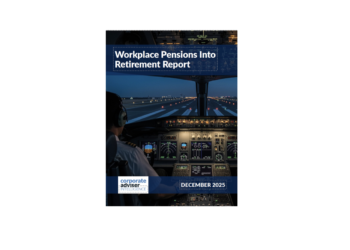The scope of pension trustees’ fiduciary duties has been heavily debated since the leading case of Cowan v Scargill (1984), where the court stated that the trustees had to invest the assets of the scheme in the best financial interests of the individuals. In 2014, the Law Commission confidently declared its project to clarify the law on fiduciary duty to be closed. Yet more than a decade later, conflicting legal opinions persist.
It is argued here that the legislature needs to intervene to address this problem. Pension funds are under increasing pressure – from members, lobbyists and society at large – to take non- financial factors into account when exercising their investment power. They are subject to ever- increasing reporting burdens regarding their policies concerning matters loosely grouped together as “environmental, social or governance” (ESG) concerns, as well as stewardship activities.
Recent Supreme Court judgements suggest that in certain circumstances victims of corporate misbehaviour may seek compensation from the ultimate owners of a rogue company. Such redress could be obtained despite shareholders having limited liability under corporate law. In the absence of clear legislative guidance, trustees could unwittingly bring themselves within the scope of this duty finding themselves liable for the acts of investee companies.
The historical roots of the concept of fiduciary duty lie in medieval times. The separation of legal and beneficial ownership developed in response to concerns regarding the management of land – generally family estates – on behalf of another. The “real” or beneficial owners of the land included crusading knights, minors and monastic orders and to protect their interests, the courts of equity developed the concept of the “use”, the forerunner of the modern trust.
There are several points worth noting about these early applications of trust law principles. Firstly, the context was microeconomic, with minimal impact on society at large. Secondly, the fact that many of the litigants involved were linked with the church imbued the duties of the trustee with a sacred character, one that arguably persists to this day. Thirdly, trust law was created by the courts of equity to avoid a strict application of the law resulting in undesirable outcomes; it would be ironic if a rigid application of trust law principles led to such outcomes.
Cowan v Scargill was therefore decided according to legal principles developed over centuries in the context of the management of relatively small family estates. These principles appear to have been seamlessly transitioned to apply to the macroeconomic context. There are now trillions of pounds held in pension funds: the investment strategy of these funds has an impact on society as a whole – a point not lost on Mr Scargill, early on spotted the potential of pension funds to pursue political goals.
The enduring legal controversy following Cowan v Scargill led to the Law Commission’s 2014 report, in which it purported to clarify the law relating to the fiduciary duties of pension scheme trustees by formulating a two-stage test. This was endorsed by the Supreme Court in a recent judicial review case brought by the Palestine Solidarity Campaign.
However, this did not put the subject to rest. There is uncertainty around how the two-stage test can be applied in practice; for example, how many members need to agree to a particular non- financial factor being taken into account? In addition, the Palestine judgement was concerned with the exercise of a power by the Secretary of State and does not directly address the duties of pension scheme trustees.
This uncertainty leaves scheme trustees in a difficult position. Trustees who apply the two- stage test risk becoming the defendant in a test case. Even trustees who consider particular ESG considerations to be “financial factors” risk being sued on the basis that this was not their genuine motivating factor. On the other hand, the trustees’ approach to ESG factors is being increasingly tested and scrutinised. There is also the risk of liability for the acts of investee companies.
These problems are unlikely to be resolved by requiring trustees to write more policies. The Companies Act now recognises the need for directors to be able to have regard to non- financial factors when making decisions on behalf of the company; however, there is no equivalent statutory provision for trustees. It is argued that a review of fiduciary and other laws applicable to pension trustees is long overdue.





